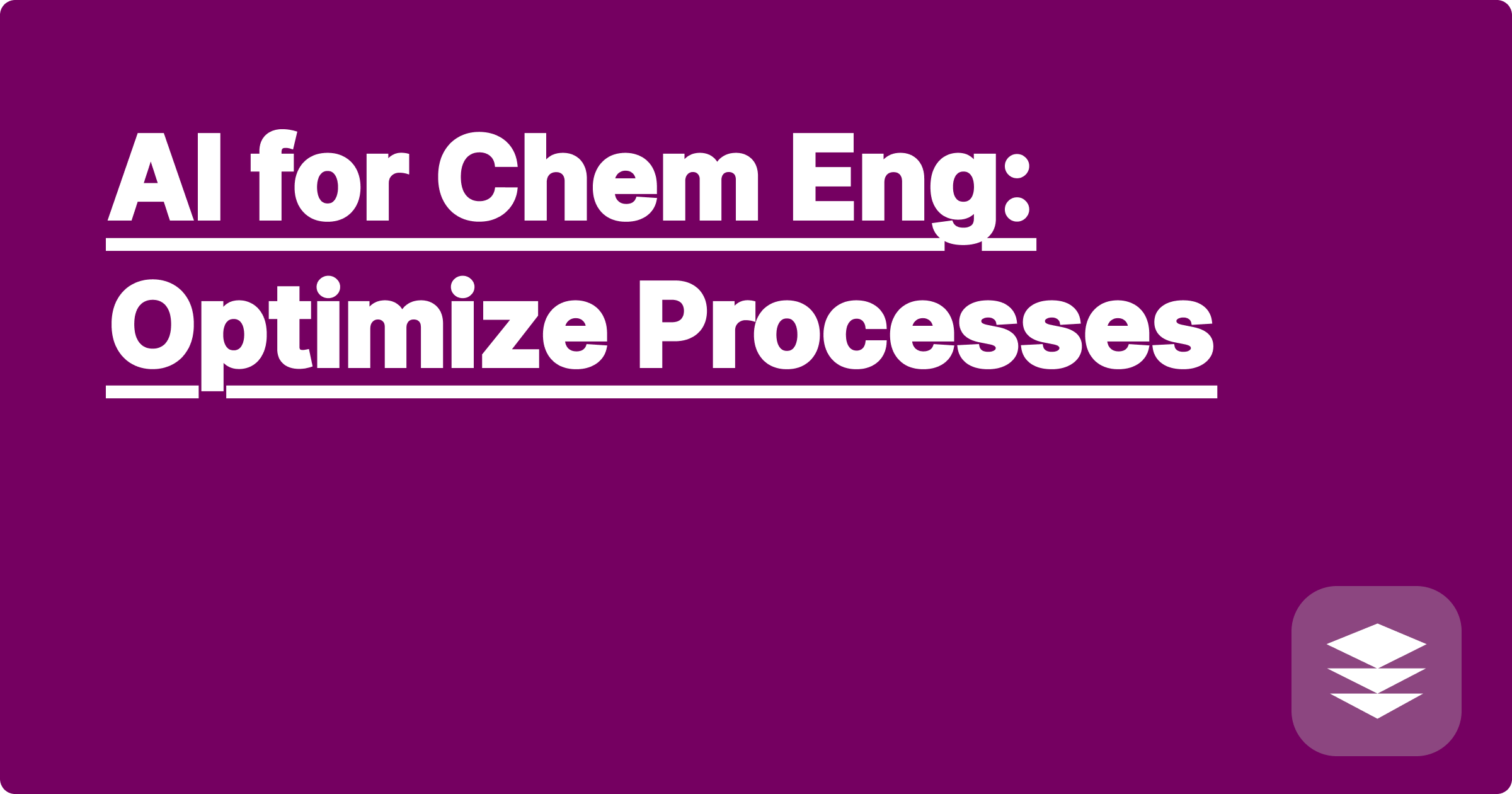
The world of chemical engineering is complex, demanding precision and efficiency in every process. From designing new materials to optimizing large-scale chemical plants, the challenges are immense and the stakes are high. Traditional methods often involve time-consuming experiments, complex calculations, and extensive literature reviews. However, a new era of innovation is dawning, driven by the power of Artificial Intelligence. AI is transforming the landscape of chemical engineering, offering unprecedented opportunities to optimize processes, accelerate research, and unlock new levels of efficiency.
For STEM students and researchers, particularly in chemical engineering, mastering these AI tools is no longer a luxury but a necessity. This blog post dives deep into the practical applications of AI in chemical engineering, providing you with actionable strategies and insights to enhance your learning and research. We'll explore how AI can streamline your workflow, boost your productivity, and ultimately empower you to achieve greater success in your academic and professional pursuits. Think of this as your friendly guide to navigating the exciting world of AI-powered chemical engineering, written by a fellow STEM student who's been there and done that.
Chemical processes are inherently complex, involving intricate interactions between various reactants, catalysts, and operating conditions. Optimizing these processes to achieve maximum yield, minimize waste, and reduce energy consumption is a constant challenge. Traditionally, this has involved a combination of experimental trial and error, theoretical calculations, and expert knowledge. However, these methods can be time-consuming, resource-intensive, and often limited by the complexity of the system. Consider the challenge of optimizing a reaction involving multiple reactants and catalysts. Determining the optimal concentrations, temperature, and pressure requires numerous experiments and extensive data analysis. Similarly, designing a new chemical plant involves complex simulations and optimization algorithms to ensure efficient operation and minimize environmental impact.
AI offers a powerful new approach to optimizing chemical processes. Machine learning algorithms can analyze vast datasets from experiments and simulations, identifying patterns and relationships that would be impossible for humans to discern. This allows for the development of predictive models that can accurately forecast the outcome of a chemical process under different conditions. For example, imagine using an AI model to predict the yield of a reaction based on the input parameters. This could significantly reduce the need for costly and time-consuming experiments, allowing researchers to quickly identify the optimal operating conditions. Furthermore, AI can be used to design and optimize complex chemical plants, taking into account factors such as energy consumption, waste generation, and safety.
Implementing AI in chemical engineering involves several key steps. First, you need to gather relevant data from experiments, simulations, or literature sources. This data needs to be preprocessed and cleaned to ensure its quality and consistency. Next, you select an appropriate machine learning algorithm based on the specific problem you are trying to solve. This could be a regression algorithm for predicting continuous variables like yield or a classification algorithm for categorizing different types of reactions. The chosen algorithm is then trained on the prepared data, allowing it to learn the underlying patterns and relationships. Once the model is trained, it can be used to make predictions or optimize process parameters. Finally, it is crucial to validate the model's performance using independent datasets to ensure its accuracy and reliability.
Imagine using a GPAI (Generalized Personal AI Partner) as your virtual research assistant. You can use it to organize your literature review, summarizing key findings from numerous research papers and identifying relevant information for your specific research question. For instance, your GPAI can help you navigate through hundreds of articles on catalyst design, extracting information on the performance of different catalysts under various conditions. This can save you countless hours of manual searching and reading. Another example is using AI-powered tools like ChemSpider to predict the properties of chemical compounds. By inputting the molecular structure, you can obtain information on its physical and chemical properties, toxicity, and potential applications. This can be incredibly helpful in designing new materials or optimizing reaction conditions. AI-powered process simulators, like gPROMS, can be used to model and optimize complex chemical plants, allowing engineers to test different operating scenarios and identify the most efficient configurations.
Integrating AI into your academic workflow can significantly enhance your productivity and learning. Start by familiarizing yourself with the basics of machine learning and exploring different AI tools available. Many online resources and courses can help you get started. Don't be afraid to experiment with different tools and find the ones that best suit your needs. Consider using a GPAI to manage your time and prioritize tasks. For example, you can ask your GPAI to create a study schedule based on your deadlines and learning goals. It can also help you break down complex tasks into smaller, manageable steps, making it easier to stay organized and motivated. Leverage AI-powered writing tools like Grammarly to improve the clarity and conciseness of your research papers and reports. Furthermore, actively participate in online communities and forums to connect with other STEM students and researchers who are using AI. Sharing your experiences and learning from others can accelerate your learning and open up new possibilities.
In conclusion, AI is rapidly transforming the field of chemical engineering, offering exciting new opportunities for optimization and innovation. By embracing these powerful tools and integrating them into your workflow, you can significantly enhance your learning, accelerate your research, and unlock new levels of success in your academic and professional journey. Start exploring the world of AI-powered chemical engineering today and discover the endless possibilities it holds. Don't be intimidated by the complexity; start small, experiment with different tools, and gradually incorporate AI into your daily routine. The future of chemical engineering is intelligent, and the time to embrace it is now.